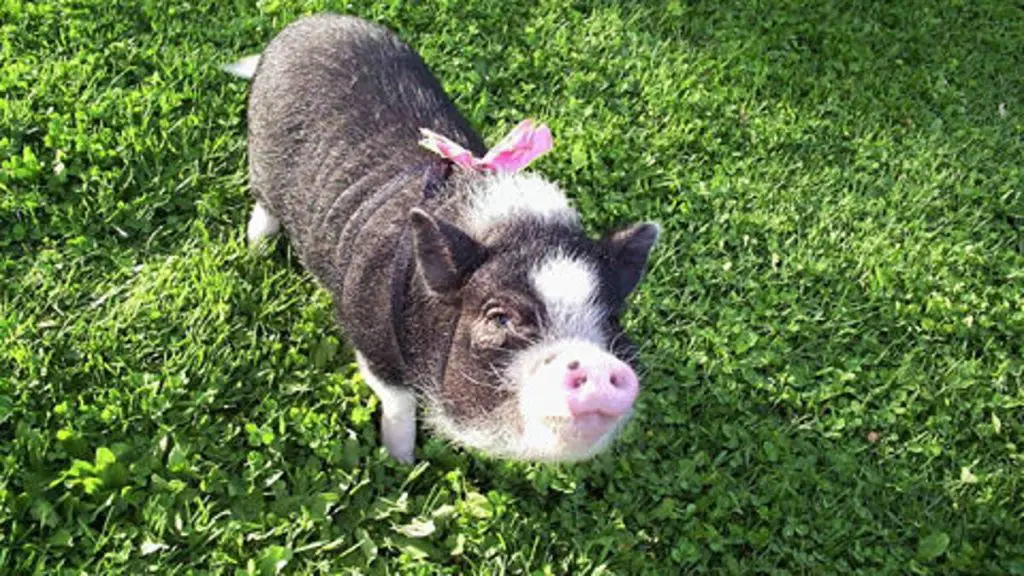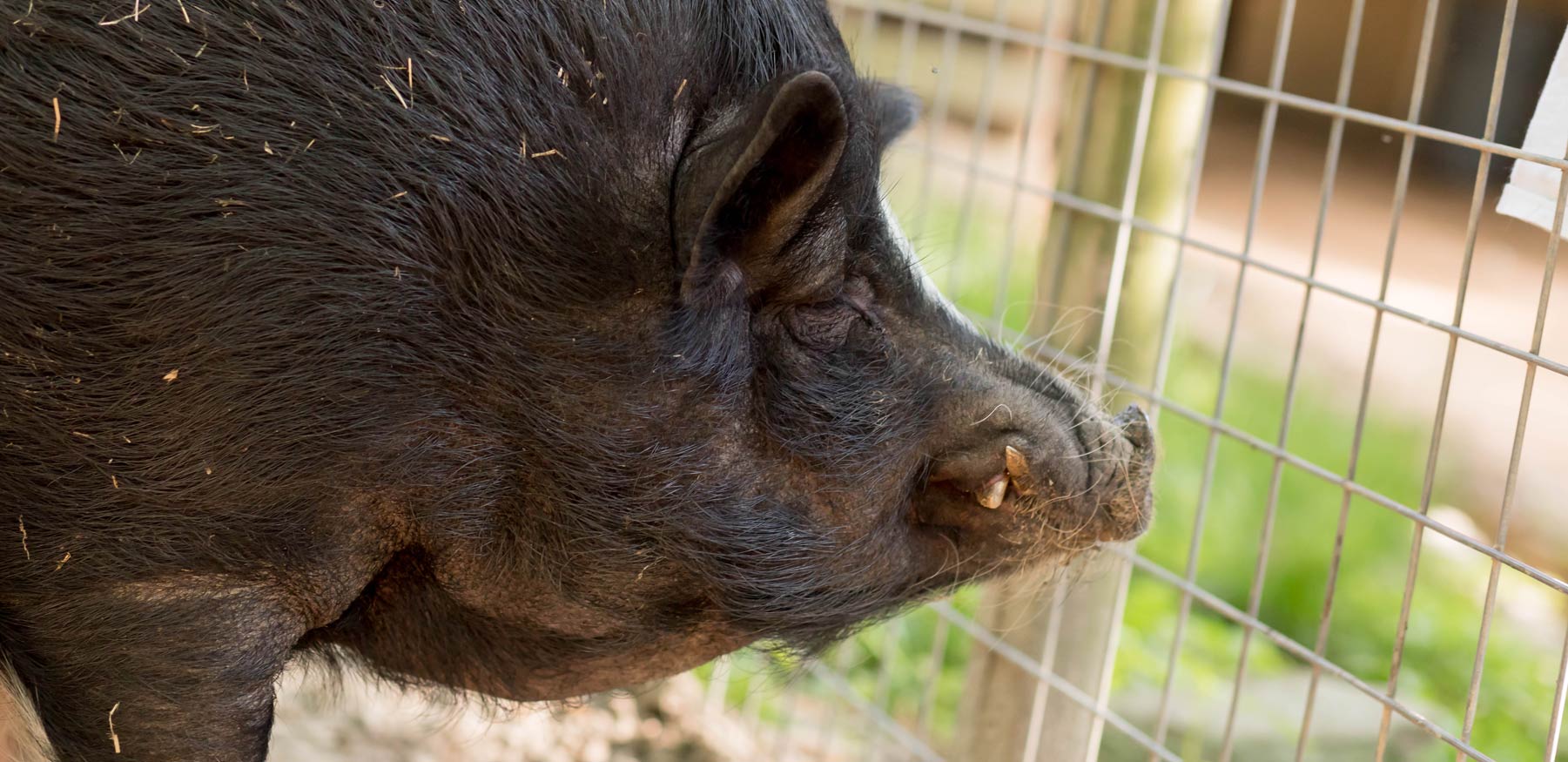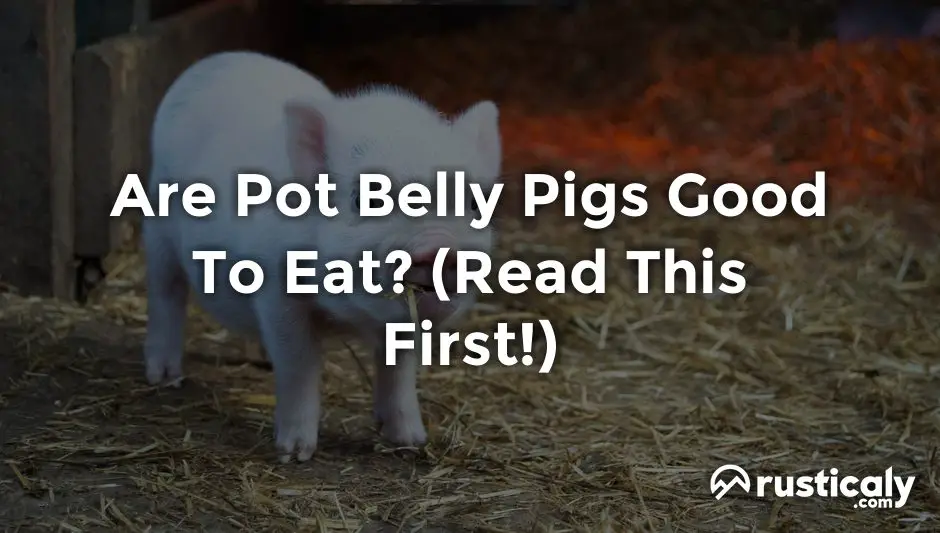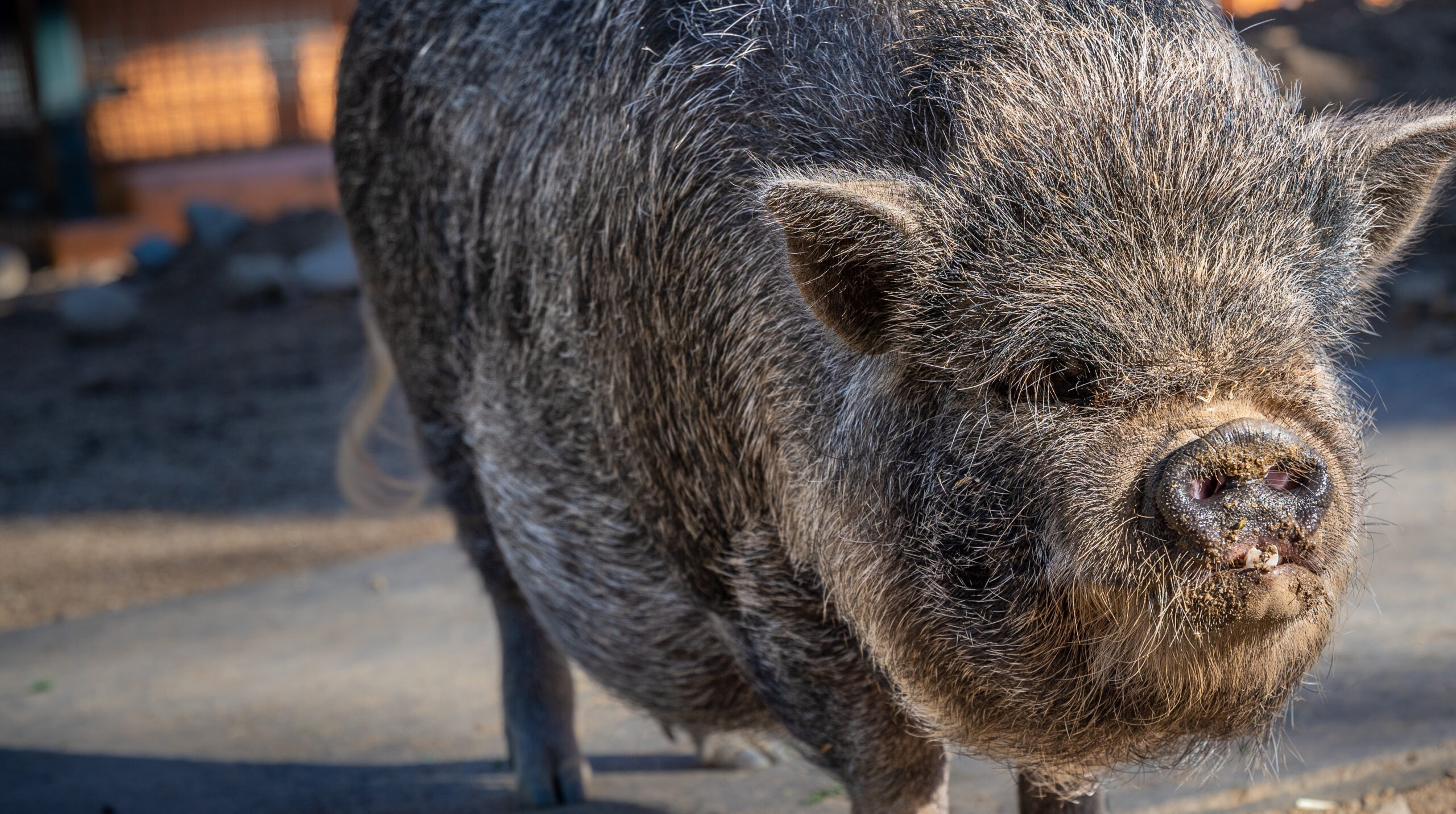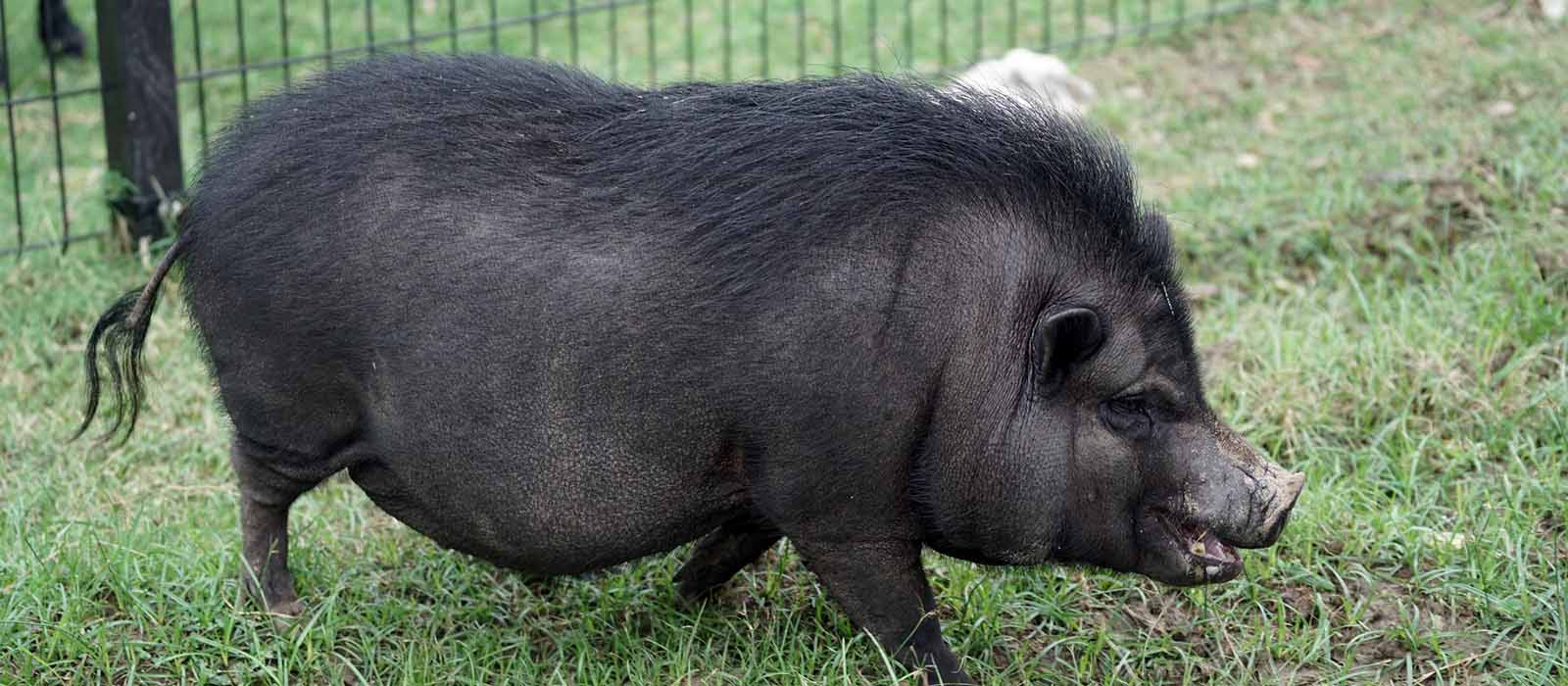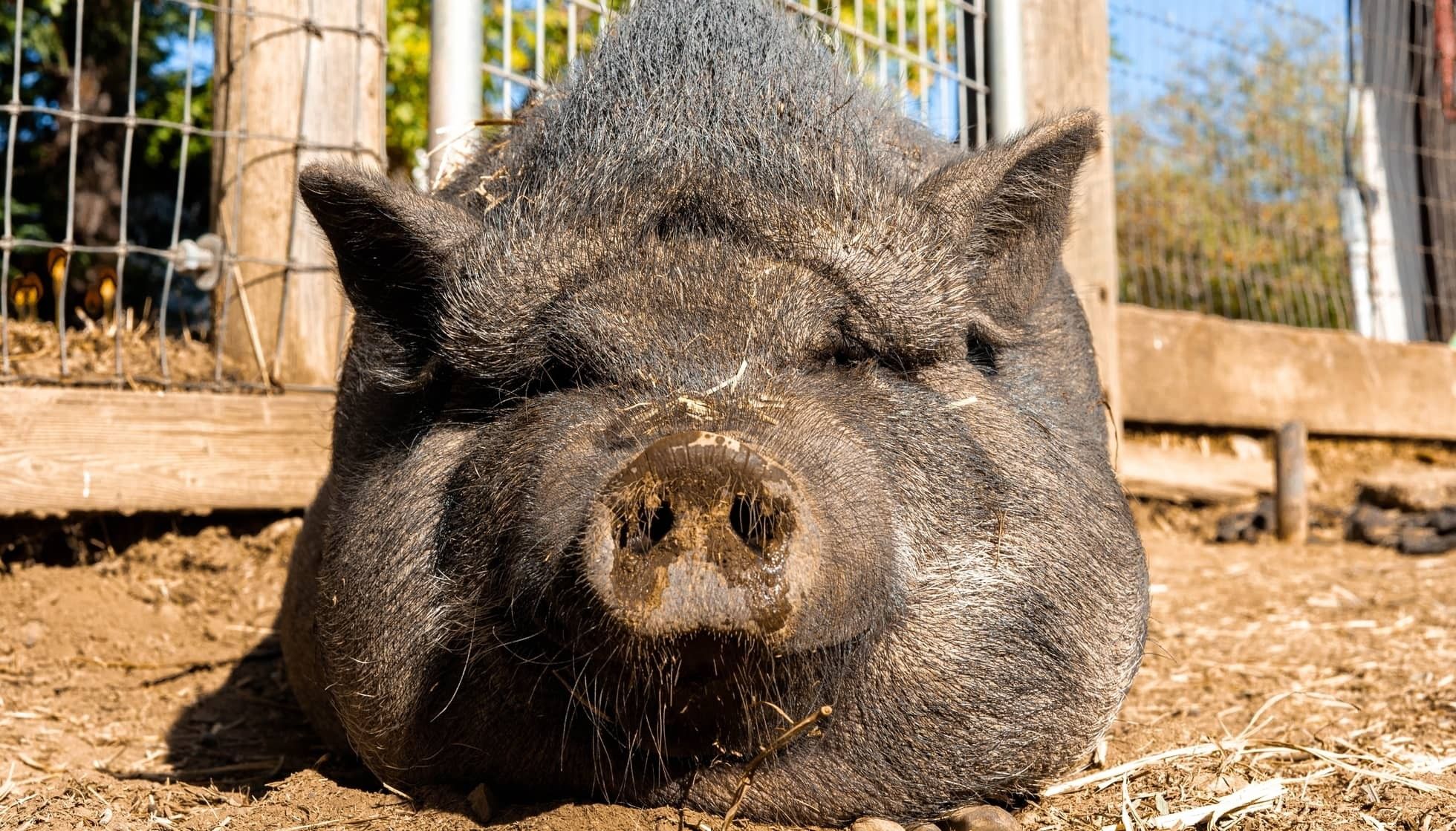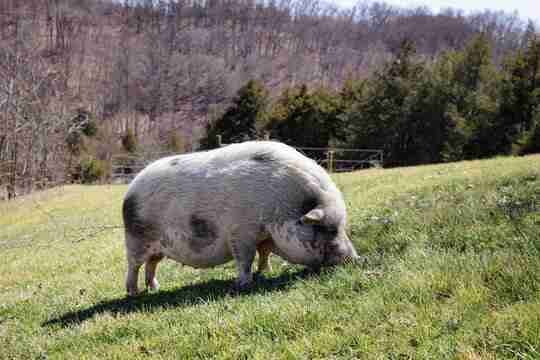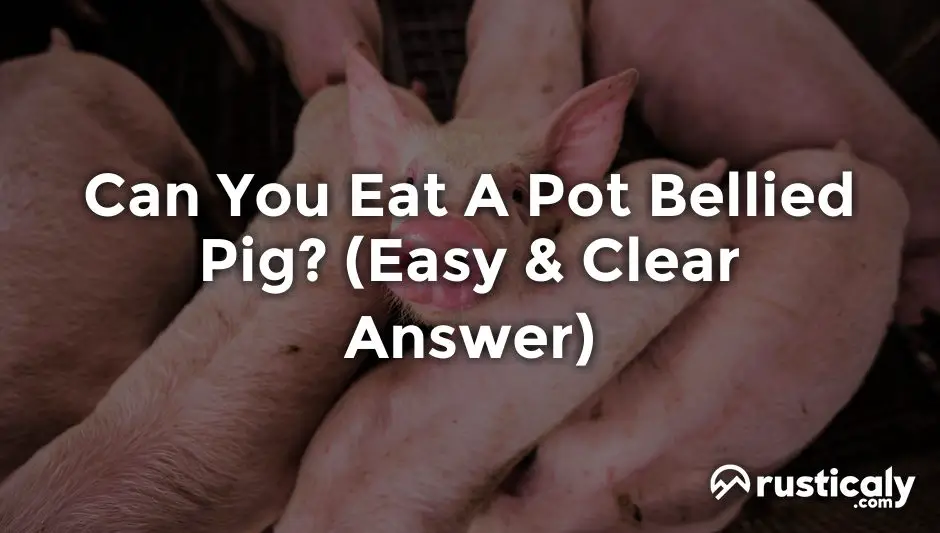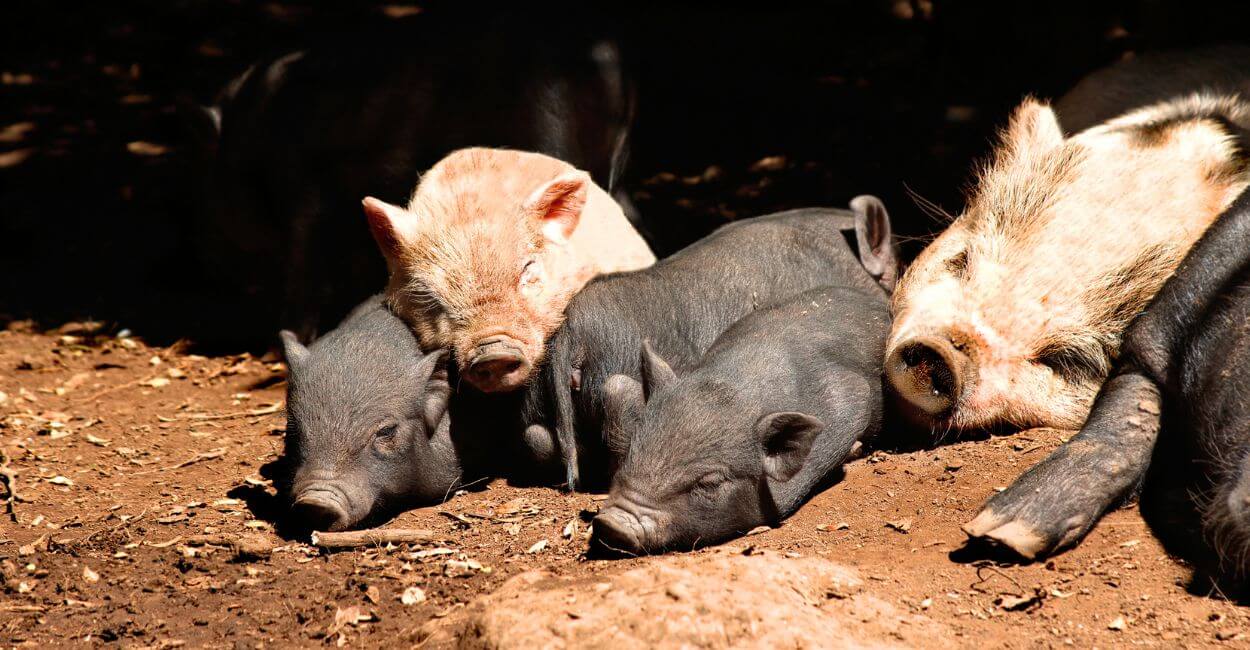Are Pot Belly Pigs Good For Meat
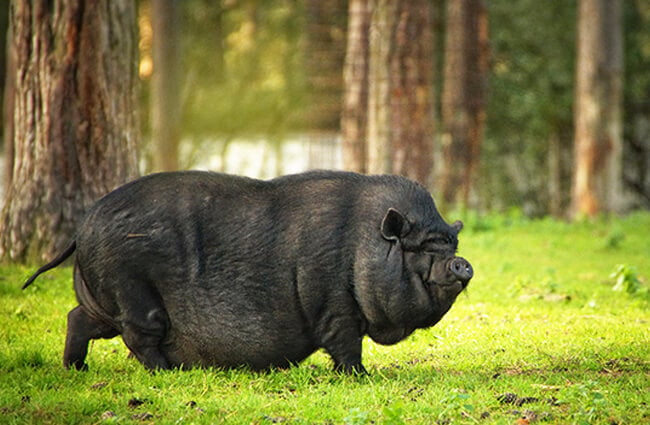
The aroma of woodsmoke hung heavy in the crisp autumn air as Sarah tended to her garden, a kaleidoscope of fading colors mirroring the turning leaves. A chorus of snorts and grunts erupted from the nearby pen, a sound she’d grown accustomed to over the years. It wasn't the sound of typical farm pigs; these were her pot-bellied pigs, miniature swine with surprisingly big personalities.
The question of whether pot-bellied pigs are suitable for meat is a complex one, fraught with ethical considerations, practical challenges, and a surprising lack of readily available data. While technically edible, the reality of raising and processing these animals for food presents a unique set of circumstances that often steers individuals and farmers towards alternative options.
The Rise of the Miniature Swine
Pot-bellied pigs, originating from Vietnam, gained popularity in the 1980s as adorable and seemingly low-maintenance pets. Images of these small, rotund pigs lounging in suburban backyards flooded popular culture, fueling a surge in demand. Many owners, unprepared for the reality of owning a pig, soon realized that these intelligent and surprisingly strong creatures required considerable care and attention.
Animal shelters and rescue organizations found themselves inundated with unwanted pot-bellied pigs as people realized the reality of their size, dietary needs, and behavioral quirks. This resulted in a population of pigs often viewed as being displaced and unwanted.
The Ethical Dilemma
The primary reason pot-bellied pigs are rarely raised for meat boils down to the powerful emotional connection people form with them. Their intelligence, playful antics, and expressive faces often lead owners to view them as family members rather than livestock.
This emotional bond makes the prospect of slaughtering them for food unpalatable, even for individuals who may consume other types of pork. Furthermore, the pet pig industry has unintentionally played a role in shaping the common perception of these animals.
Practical Challenges: Yield and Carcass Composition
Even setting aside ethical considerations, raising pot-bellied pigs for meat presents significant practical challenges. Their smaller size results in a considerably lower meat yield compared to standard breeds of swine. A typical market-weight pig might yield 150-200 pounds of meat, a pot-bellied pig at a comparable age might only yield a fraction of that, perhaps 40-60 pounds, or even less.
The carcass composition is also different. Pot-bellied pigs tend to have a higher fat-to-muscle ratio, resulting in a less desirable meat product from a commercial standpoint. This means more work for less meat, a considerable hurdle for any commercial farming operation.
Lack of Data and Research
Adding to the complexity is the surprising lack of comprehensive data on the meat quality and production efficiency of pot-bellied pigs. While anecdotal evidence exists from individuals who have slaughtered their pigs for personal consumption, there are few, if any, scientific studies comparing their meat to that of standard breeds.
This lack of empirical data makes it difficult to objectively assess their suitability for meat production. The existing data mainly comes from individual experiences, which may not always be representative.
Alternative Options: Rescue and Rehabilitation
Given the ethical and practical challenges, many advocates and rescue organizations focus on alternative solutions for pot-bellied pigs. These include finding suitable adoptive homes, providing sanctuary for pigs that cannot be re-homed, and educating potential owners about the responsibilities of pig ownership.
Rescue organizations play a vital role in providing care for abandoned or neglected pigs, often offering medical treatment, proper nutrition, and socialization. Some sanctuaries provide a permanent home for pigs, allowing them to live out their lives in a safe and enriching environment.
The Bottom Line: Not Your Typical Pork
Ultimately, while technically edible, pot-bellied pigs are not generally considered suitable for meat production. Their small size, high fat content, and the strong emotional bonds people form with them make raising them for meat a less viable and often undesirable option.
The focus remains on responsible pet ownership, rescue efforts, and finding alternative solutions for the growing population of unwanted pot-bellied pigs. The future lies in re-framing our understanding of these animals, acknowledging them as intelligent and sensitive beings deserving of care and respect, not just potential sources of pork.
Sarah, watching her pigs root contentedly in the earth, knew she'd made the right choice. They were more than just animals to her; they were companions, quirky and endearing members of her extended family. The thought of them as anything else simply wasn't an option.

